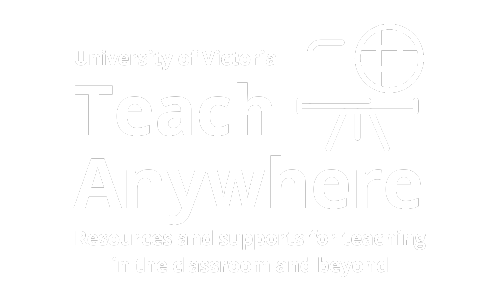The list below represents what a group of experienced UVic Teaching Assistants (TAs) have identified as important aspects for “codes of conduct,” or “honour codes,” or “ways of being together” guidelines in a TA role. Not all suggestions below may be applicable in all departments on campus. TAs are encouraged to build responsible codes of conduct for their weekly sessions with students, to encourage all students to maintain an environment of engaged learning and respect. Please use the list as a guide only as this list is not exhaustive but encompasses a diverse array of aspects.
Some aspects for codes of conduct as a TA include …
Professionalism
- Maintain professional distance
- Respect confidentiality of students
- Respect students’ privacy
- Maintain professional integrity
- Handle disagreements with the course instructor ethically
- Practice professional and consistent communication
- Embrace open door policies – do not leave doors closed when with students, but be sensitive to a voice carrying to the outside corridor
- Mark and grade with consistent and transparent standards
- Provide constructive criticism on sensitive matters to students professionally
Timely
- Be prepared for your duties as a TA
- Be on time
- Be where you say you are for office hours
- Refer students to student health and/or counseling if appropriate
- Respond to e-mails in a timely manner and keep copies of communication
- Show up to all lectures and take notes, if appropriate
- Declare any conflicts of interest to the course instructor at the beginning of the term
- Inform a student asking a question that you are unsure how to answer, that you will look into it and follow-up
Inclusivity
- Respect diversity
- Treat all students with respect
- Acknowledge boundaries
- Be fair, equitable, and refrain from favouritism
- Honour this code of conduct
- Be aware of ethics of behaviour outside of the classroom
- Ensure discussion groups are inclusive
- Create a respectful and open environment for all students
- Provide warnings if students are going to be discussing a difficult, controversial, or sensitive topic in class
This guide was developed during the Teaching Assistant Consultants’ (TACs) seminars for the academic year 2009-2010 and updated in 2020-2021.

